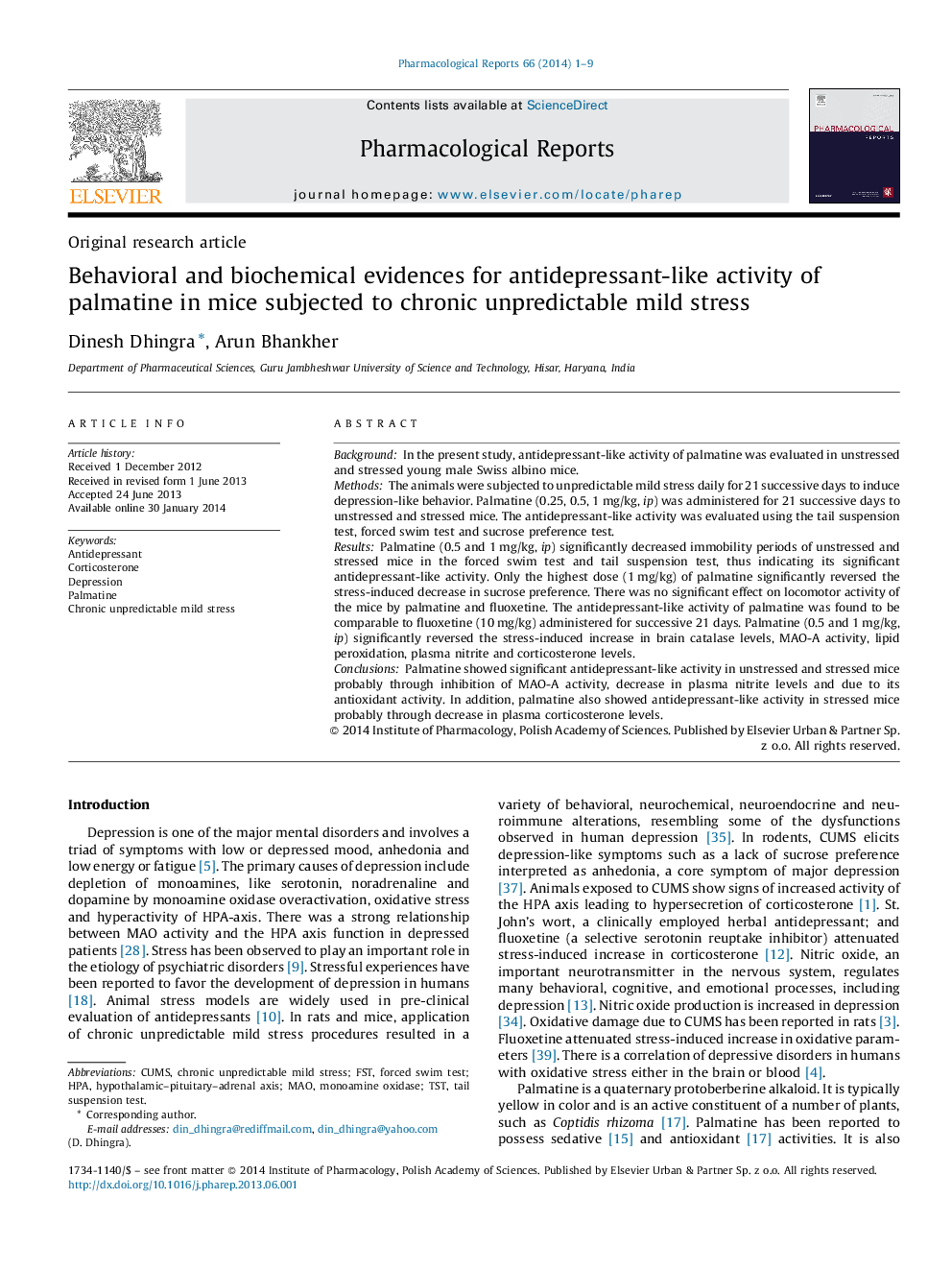| Article ID | Journal | Published Year | Pages | File Type |
|---|---|---|---|---|
| 2010611 | Pharmacological Reports | 2014 | 9 Pages |
BackgroundIn the present study, antidepressant-like activity of palmatine was evaluated in unstressed and stressed young male Swiss albino mice.MethodsThe animals were subjected to unpredictable mild stress daily for 21 successive days to induce depression-like behavior. Palmatine (0.25, 0.5, 1 mg/kg, ip) was administered for 21 successive days to unstressed and stressed mice. The antidepressant-like activity was evaluated using the tail suspension test, forced swim test and sucrose preference test.ResultsPalmatine (0.5 and 1 mg/kg, ip) significantly decreased immobility periods of unstressed and stressed mice in the forced swim test and tail suspension test, thus indicating its significant antidepressant-like activity. Only the highest dose (1 mg/kg) of palmatine significantly reversed the stress-induced decrease in sucrose preference. There was no significant effect on locomotor activity of the mice by palmatine and fluoxetine. The antidepressant-like activity of palmatine was found to be comparable to fluoxetine (10 mg/kg) administered for successive 21 days. Palmatine (0.5 and 1 mg/kg, ip) significantly reversed the stress-induced increase in brain catalase levels, MAO-A activity, lipid peroxidation, plasma nitrite and corticosterone levels.ConclusionsPalmatine showed significant antidepressant-like activity in unstressed and stressed mice probably through inhibition of MAO-A activity, decrease in plasma nitrite levels and due to its antioxidant activity. In addition, palmatine also showed antidepressant-like activity in stressed mice probably through decrease in plasma corticosterone levels.
